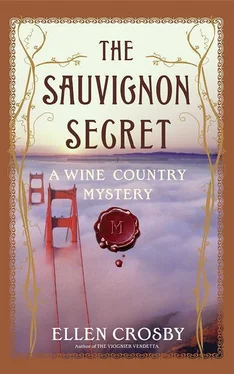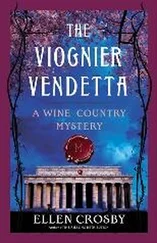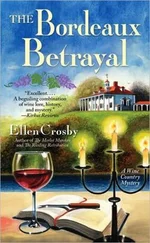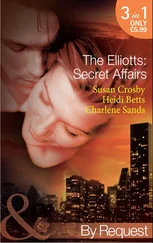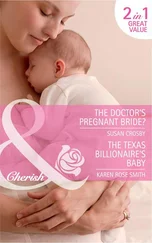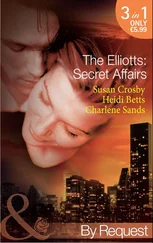Except Paul’s death seemed to be somehow tied in with the Mandrake Society—the wineglass deliberately placed next to his body—and the same glass had also been at the scene where Mel died, reportedly of a heart attack. One wineglass and one dead body is someone haunted by the past; two starts to sound like a creepy pattern, too unusual a coincidence not to be relevant to what happened to Stephen Falcone, who I now suspected died of exposure to anthrax.
I had learned plenty from Noah about the research Charles’s group had been doing, and that explained why it had been so critical to keep Stephen’s death quiet. But Noah had also revealed the tantalizing fact that Maggie didn’t know how to drive a car—though she wouldn’t have been the first person in the world to get behind the wheel and drive drunk without a license, especially if she was upset enough. The police must have believed that latter theory or someone would have been arrested or charged with something. I wondered whose car she’d taken.
I got into the Mini, opened my phone, and called Kit. She answered midway through the second ring.
“Do I know you? Who is this? Wait—don’t tell me. Lucie Something-or-other. You own that vineyard.”
“I was only gone four days, not four years.”
“You could have called.”
“I am calling.”
“I meant before.”
“Before what? I got in Wednesday at midnight. It’s Friday morning. What’s going on? You sound like the eighth dwarf. Crabby.”
“Sorry. I was here last night until midnight. And the night before. And the night before.”
“You can’t go on like this.”
“You’re telling me. If you divide my salary by the number of hours I live in my office, I’m practically paying them to let me work here.”
“Maybe you should find another job.”
“Yeah, well, I’m worried about that, too,” she said. “That one of these days I might be job hunting.”
“You think they’ll fire you? Who else would work her heart out the way you do?”
“Some child straight out of college who will toil for a third of my pay and be grateful.”
“The child won’t have your experience.”
“The bosses won’t care. It’s the bean counters who are driving this thing, Luce.”
“Jeez, now I’m depressed.”
“Yeah, well try being me.”
I heard a deep sigh and then the sucking sound of a straw at the bottom of a glass. “Moving on,” she said. “What’s up? How was California? See Quinn?”
“California was fine, I saw Quinn, and I need a favor,” I said. “Pretty please?”
“Wow, that was fast. Thanks for dishing,” she said as her computer dinged that she had e-mail. “I know how this works, you know. You want me to say yes before you tell me what it is.”
“You are so suspicious. It’s just an archive search of a couple of old news stories.”
“Huh. That sounds harmless. Which old stories?”
“A woman who died in a car accident forty years ago. Drunk driving. Maggie Hilliard, probably Margaret Hilliard. She drove off the bridge to Pontiac Island and drowned. It might have been fairly sensational. And second—this one I’m not sure about—can you find anything about an autistic man named Stephen Falcone who disappeared, say, six months or so before her accident? Might be less than six months. He might have lived locally. He had a sister, Elinor. She might have reported him to the police when he took off.”
“That’s a lot of ‘mights.’ You’re only looking for the story about him going missing?” she asked. “Anybody find him?”
“Yeah,” I said. “Maggie Hilliard, among other people. He died a few months later. You won’t find anything on that.”
“All right, I’ll look. But you’re going to have to connect the dots between these two when I see you. You got me all curious.”
“Me, too. That’s why I was wondering if there was anything in the press back then. The only person still alive who knew them might be lying about what happened to one or both of them.”
“And that would be?”
“Charles Thiessman.”
“Are you kidding me? Ambassador Charles Thiessman?” I heard her chair creak and the click of computer keys.
“Yup.”
“What are you saying, Luce?”
“Nothing yet. I could be completely wrong about this.”
Kit’s computer keys continued clicking. Finally she said, “This is going to take some time. Can you be more specific on your dates or a time line?”
“Try looking during the months of June, July, and August in 1970 for Maggie Hilliard. She was at a beach house party the night it happened. Sounds like summer to me.”
More clicking. I finished the lukewarm water from my water bottle, set it back in the cup holder, and waited.
“Nope, nothing.” Kit’s desk chair creaked and her e-mail bell went off again. I heard her mutter something and she said, “Look, my managing editor is about to go nuclear about something, so I gotta go. He has this thing about business hours being the time we ought to be doing work.”
“Oh, gosh, I didn’t mean to get you in trouble.”
“Don’t worry, I do that just fine all by myself. Look, if I find anything, I’ll bring it to the dinner tonight,” she said. “Thank God we digitized our archives so at least I don’t have to squint at microfilm.”
“Tonight?”
She must have heard the disappointment in my voice. “It happened forty years ago, Luce. Why so urgent all of a sudden? What’s going on?”
“I’ll tell you when I see you. It’s way too long to go into now.”
“I’ll do some poking around on my lunch hour, okay?” She sighed. “I never go out anymore. Just stuck at my desk all the time. I may as well do something interesting … aw, jeez, there’s my boss e-mailing again. I’d better go. I’ll call you later if I get any hits.”
I stopped by the General Store on my way home from Seely’s to pick up a few items—milk, peanut butter, and bread, as well as whatever was left in Thelma’s baked goods case after the Romeos swept through like a plague of locusts for their daily fix of doughnuts, coffee, and gossip. Eli had an appetite that reminded me of a Hoover vacuum, and even Hope, a delicate little angel who looked as though she ate like a bird, inhaled food like there was a hole in the bottom of her shoe.
Thelma liked to boast that she had more variety on her shelves than even the most upscale grocery store in the region, which happened to be true since none of those places carried ammunition, camping equipment, bloodworms, fireworks (in season), chain saw replacement parts, and two kinds of hoof polish. As for food, she stocked the emergency staples, or as she liked to say, the essential white stuff you needed to survive the white stuff of a blizzard: milk, bread, and toilet paper. But the currency that had kept her clients loyal for five decades was her single-handed talent for turning our little country store into a throbbing nerve center of information about every who, what, where, why, and when that went on in two counties. Over the years, she’d cultivated a far-flung network of sources—anyone who walked through her door—and refined her interviewing technique so that she’d either surprise out of you what she wanted to know, or scare you until you told her.
The Christmas sleigh bells Thelma used as a low-tech security system jingled and a blast of frigid air-conditioning hit me as I walked inside. The parking lot had been empty, but it sounded like a party in the back room, which meant she was already engrossed in one of her beloved soap operas or a game show.
She yelled, “I’m coming,” in her reedy voice and a moment later stood in the doorway, making an entrance with the dramatic timing of a venerable leading lady appearing on stage and the verve of a teenager who liked showing more skin than fabric. Her face lit up when she saw me and I knew that meant I was about to be squeezed for the details of my grandfather’s visit and—if she’d heard about it—how it had gone between Quinn and me in California.
Читать дальше
